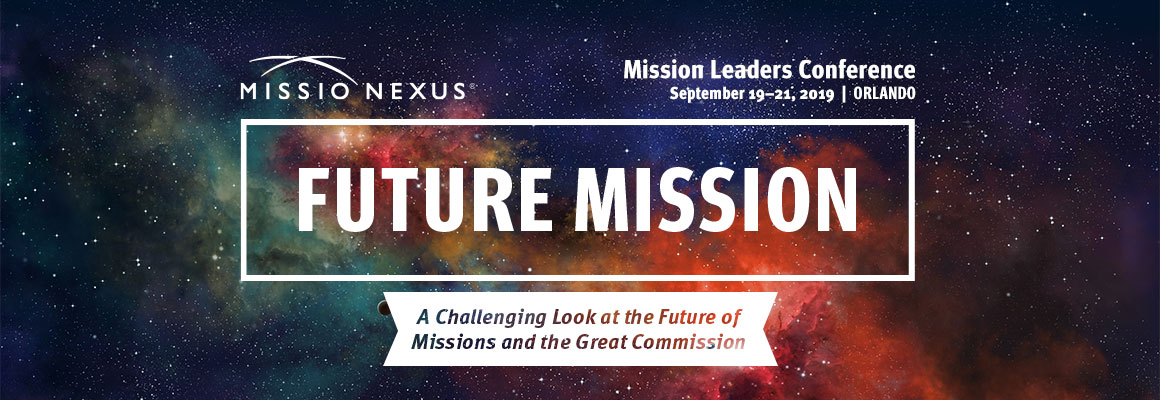Workshop Tracks
Pre-Conference
Wednesday, 1:00 – 9:00 PM
Presented by: Kathy Mort, Tory Ruark & Randy Schmor
The SIW is a seminar designed to help people understand how they can incorporate and achieve competence in all Seven Standards of Excellence, a code of best practice for short-term mission practitioners. It also provides a review of how to form and manage a Peer Review process, should an organization desire to pursue full accreditation. Workshops are interactive, use case studies and small group discussions. MISTM-grid theory and the supporting principles behind the standards are reviewed. Church and organizational staff members, mission committee members, and team leaders will want to attend this workshop which takes a comprehensive look at excellent short-term mission trips.
Primary Audience: Church and organizational staff, mission committee members, and team leaders
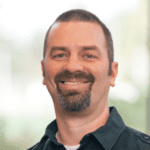
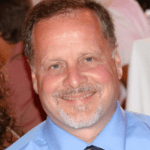
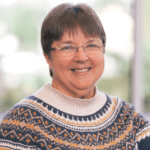
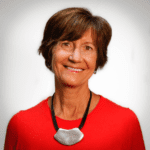
Thursday, 8:00 AM – 12:00 PM
Presented by: Barbara Bowman
The CDO Best Practice Roundtable will provide an opportunity for fundraising professionals to build their professional network, acquire a complete understanding of what components typify a robust, healthy nonprofit development function, and walk away with new strategies shared by a group of peers.
Learning objectives:
- Lead your fundraising team through a constructive Strengths/Weakness/Opportunities/Threats analysis
- The identification of key strategic priorities for growing philanthropic income
Primary Audience: Fundraising and marketing professionals
4.5 CPE Specialized Knowledge
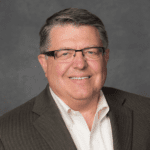
Thursday, 8:00 AM – 12:00 PM
Presented by: Doug Hennum
The purpose of the CIO Roundtable is to create a place for technology leaders to network with peers, learn about the latest technologies, discuss challenges, find new solutions and get advice from other coleagues. It is designed for senior IT executives and is aimed at helping them address strategic IT opportunities and challenges in a globally connected world.
Learning objectives:
- To identify the latest technologies and how they may benefit your organization
- To ascertain technology challenges facing mission organizations
- To review potential solutions
- To assess and address strategic IT opportunities.
Primary Audience: Senior level IT executives
4.5 CPE Information Technology
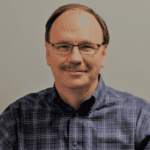
Thursday, 8:00 AM – 12:00 PM
Presented by: Tim Maxwell
The CFO Roundtable is an opportunity for experienced financial leaders to network, interact, and learn from their peers. This highly interactive forum will equip leaders to discover the answers to the most complicated mission-critical issues and empower you to overcome your current or next challenge.
CFOs will share:
- solutions they’ve found
- pitfalls they’ve experienced
- the lessons they have learned
Best of all, you’ll hear war stories and examples of do’s and don’ts.
Learning objectives:
- Develop an expanded perspective on financial best practices
- Assess how to implement these ideas in your work responsibilities
Primary Audience: CFOs or financial leaders
4.5 CPE Specialized Knowledge
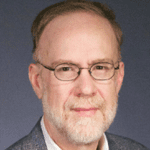
Thursday, 8:00 AM – 12:00 PM
Presented by: Dick Freed
This workshop will focus on the Interactive Adult Learning model of learner-centered instructional design and facilitation. By the end of this workshop, all participants will have:
- Reviewed and discussed some principles and axioms of Interactive Adult Learning
- Reviewed the Seven Design Steps of Interactive Adult Learning
- Analyzed and practiced creating Achievement-Based Outcomes
- Analyzed and practiced designing four types of learning tasks
- Incorporated three aspects of learning into their learning tasks
- Completed a Learning Needs and Resources Assessment
- Reviewed the basics of facilitating and assessed themselves as facilitators of Interactive Adult Learning
- Practiced facilitating one or more learning tasks
- Completed a snapshot of their learning and a list of next steps they wish to take in learning to design and facilitate learner-centered training
Primary Audience: those wishing to significantly improve how training events are designed and presented.
Executive Leadership
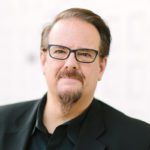
Thursday, 3:30 – 4:45 PM
Presented by: Ed Stetzer
Many executive leaders today are leading organizations and ministries primarily populated by people who are Millennials and, increasingly, Gen. Z. Ed Stetzer will talk about leadership choices and best practices, with a particular focus on leading younger and emerging generations.
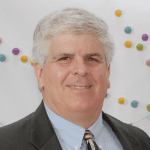
Friday, 8:30 – 9:45 AM
Presented by: Steve Coffey
This workshop will present the benefits of using future scenarios in strategic planning. Time will be given to introducing the process before providing an opportunity for participants to practice incorporating the tools.
Primary Audience: Organizational leaders
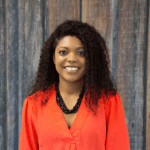
Friday, 1:30 – 2:45 PM
Presented by: Brittany Gardner
Many churches and organizations recognize the need for diversity within their spaces, but few have thought through why the need exists. Before jumping into how to create thriving multicultural environments, we must examine the purpose of doing so. As we seek to glorify God and make His name known to people all over the world, we start by appreciating how He intentionally created each of us uniquely, yet bearing His image. We can then move to mobilizing Christ-followers from different sending contexts and address working together on multicultural teams for Gospel effectiveness. This workshop will help participants develop a framework for awareness around issues of diversity, reflect on historical factors within their church or organization that have prevented healthy multicultural partnerships, think about present structures in place and develop tangible action steps to move forward.
Primary Audience: People in organizational and church leadership roles.
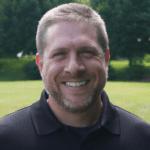
Friday, 3:30 – 4:45 PM
Presented by: Michael VanHuis
The purview of a mission agency CEO is unique. In light of this, Missio Nexus surveys this group on a triennial basis to determine what trends, issues and opportunities exist within the North American mission enterprise. With over a decades worth of data we will dive into the unique facets of where we have come and the new realities we face as a community. As we collectively engage in the topic of Future Missions, we will explore how missions today can stay true to our scriptural calling and carry out the operations and execution of cross-cultural missions in creative, sustaining and innovative ways in order to relentlessly propel the gospel forward. This will be the first report and analysis on the newly collected data from the 2019 CEO Survey.
Primary Audience: CEOs and Executive Leaders.
Saturday, 9:30 – 10:45 AM
Presented by: Mary Lederleitner & Sophia Wang
Would you like to grow your ministry exponentially? Helping women to do their best work in the Kingdom is one of the most important leadership challenges facing many churches and mission organizations given that women comprise half of the human race, more than half of the global mission force, and more than half of the people in many congregations. The ethos of this session is to honor diverse theological beliefs about what women are permitted to do in diverse ministry contexts. The focus will be to follow a developmental approach that helps leaders of ministries, churches, and teams move from where they are currently to even more fruitful engagement that exponentially advances the mission and goals of its ministry – through women!
Primary Audience: Church and mission executives, HR leaders, team leaders, pastors, and church leaders.
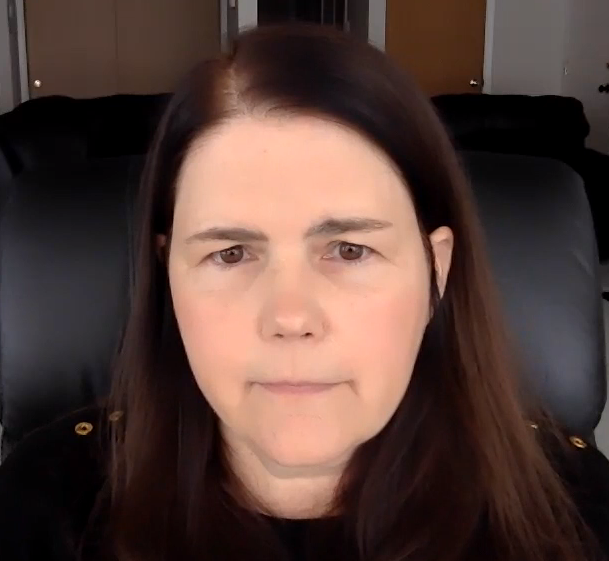
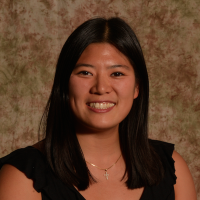
Globally Engaged Churches
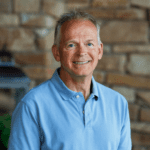
Thursday, 3:30 – 4:45 PM
Presented by: Greg Carter & David C.
As the Church prepares the next generation of Kingdom workers it desires to produce servants who are spiritually mature, emotionally healthy, and relationally secure. Millennials are especially receptive to local church leadership that is intentional in providing mentoring that is experiential. Offered within the context of loving accountability, this training will develop missionaries who are able achieve this level of maturity and stay long in their adopted country. Church leadership will have observed how the prospective missionary relates to his spouse, assigned him to work as part of various ministry projects, taught him financial skill and seen him show personal initiative. With a participating mentor the Millennial will be led through intentional development steps that build both confidence and competence.
Primary Audience: local church leadership
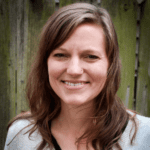
Thursday, 3:30 – 4:45 PM
Presented by: Lisa Freyenberger Smart
Churches and Mission Agencies can build relationships that allow them to send missionaries with more support and effectiveness than either could do alone. Believing this, All Nations has been building relationships with the families and churches that help send our missionaries for years. We have developed trainings to equip senders so they can be encouraged and released in their role to complete the Great Commission – and have seen our missionaries benefit in the process. In this workshop we will share our story of church-mission agency relationships and facilitate a discussion to uncover practical strategies to develop and strengthen those relationships. Pam Arlund and Lynn Dubwig from All Nations will co-present this workshop.
Primary Audience: Church Leaders/Senders, Mission Agency Mobilizing/Recruiting/Training/Partnership Staff

Friday, 8:30 – 9:45 AM
Presented by: Ed Stetzer
Ed Stetzer will look at best practices of churches that are taking responsibility for the Great Commission. They are not outsourcing their mission call, but engaging it from their congregation, and in partnership with others, seeking to engage the world with the gospel.
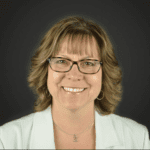
Friday, 8:30 – 9:45 AM
Presented by: Lori Rogers and Mark Whited
MomentumYes is an exciting new resource helping everyday people rethink God’s mission, the call of the Church, and their individual roles. Join us as we explore an overview of this free video-based curriculum, and how it can be effectively implemented in your church or small group. Learn ways to guide people in their next steps to engaging the nations.
Primary Audience: Church and agency leaders who want to see local churches thrive in global vision
This workshop was not recorded.

Friday, 1:30 – 2:45 PM
Presented by: Greg Carter & Dave C.
The local church’s call is to make disciples who make disciples. Missional communities offer a unique and strategic approach to training wanna be missionaries. Under the direction of church staff, the cohort group moves into a neighborhood and does life and ministry in community. The intense life-on-life mentoring and ministry in a cross-cultural context uniquely equips future global workers in ministry skills, character development and navigating team relationships. Doing this in the context of the local church strengthens sending relationships and long-term caregiving. Long before the candidate fills out his application for “Beyond My Dreams” mission agency, local church leadership will have prepared him for the rigors of cross-cultural living.
Primary Audience: local church missions leaders
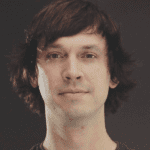
Friday, 1:30 – 2:45 PM
Presented by: Aaron Pierce
The emerging Global Youth Culture, connected by consumerism, social media, and the entertainment industry, forms the largest global culture ever to exist and is largely influenced by one predominant worldview – Secular Humanism. This demographic is not found only in post-Christian regions like Europe or the USA. It is impacting cultures in urban centers of every region of the world, including the Middle East, Asia, and Africa. The secular humanistic worldview and lifestyle is becoming increasingly prevalent among those who identify as a particular religious group (i.e. Muslim, Hindu, Christian, etc.), largely due to the influence of the Global Youth Culture. The Global Youth Culture presents a unique challenge to the Church worldwide because of the large cultural gap that exists between the Church and secularized society.
Primary Audience: Church and missions leaders

Friday, 3:30 – 4:45 PM
Presented by: Lori Rogers & Mark Whited
This workshop will build upon the introduction for this free video training series as we discuss portions of the curriculum that can be customized to a group’s specific context. Workshop participants will learn how this curriculum is designed to fit the needs of local churches by allowing leaders to disciple group members toward specific next steps in their community and with their global partners. We will touch on praying for unreached people groups, using MomentumYes to shape the culture of a church, developing a prayer time for neighbors from different backgrounds, and creating concrete next steps.
Primary Audience: Church and agency leaders who want to see local churches thrive in global vision
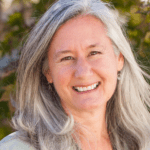
Friday, 3:30 – 4:45 PM
Presented by: Sharon Hoover
This workshop introduces seven key topics needed to identify a church’s unique missional engagement. The terrain for missions is often bewildering. Should we prioritize evangelism or works of service? Local ministries or overseas missions? What’s more important: giving money or giving time? Crisis relief or building sustainable, long-term ministries? And what about the often debated pros and cons of short-term missions trips? The workshop presents a tool to begin assessing your mission strategy and discerning further ministry and partnership choices. It is recommended for all church leaders and ministry consultants.
Primary Audience: Church leaders and ministry consultants
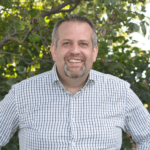
Saturday, 9:30 – 10:45 AM
Presented by: Joshua Johnson, Mary Ho & Pam Arlund
An All Nation’s missionary put it all on the line when he launched last November to live among tribespeople, learn their language, and share the hope of Jesus with them. And he paid the ultimate earthly price for this passion to reach the unreached. With his passing, we at All Nations, who sent him, have been confronted afresh with tough questions: How do we assess risk? What risks are we willing to take? How far is too far? Is Jesus worth it? Join us as we wrestle together with these questions that are crucial to preparing the body of Christ to make disciples and suffer with Jesus. Mary Ho and Pam Arlund from All Nations will co-present this workshop.
Primary Audience: Church leaders and mission agency leaders that are preparing people to go to the unreached
This workshop was not recorded.

Saturday, 9:30 – 10:45 AM
Presented by: Sharon Hoover
Deep dive into the core tensions that derail mission strategies in the local church. A wide range of opinions, spoken and unspoken, drive decisions. These underlying issues cause tension and prevent mission from advancing. Alongside Scripture, explore how principles such as boundarylessness, sacred/secular divide, and risk assessment impact decisions. By identifying concerns entrenched in personal mindsets, this workshop provides resources to move your team toward intentional and sustainable decisions. It is recommended for experienced church leaders and ministry consultants wanting to wrestle with difficult topics.
Primary Audience: Church leaders and ministry consultants
Global Strategies
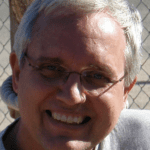
Thursday, 3:30 – 4:45 PM
Presented by: Mike Latsko
People group missiology is on the wane. Today is the day of causes–trafficking, justice, health, or some other–and such megatrends as globalization, urbanization, and diaspora. Being left in the dust is a fundamental conviction about every people hearing and its corollary–every people sending. What say you? Is the messy, complicated, so yesterday cause of people group prioritization finished? Is it worth a fresh look? Can it be re-envisioned? Might it yet have a voice in today’s missionary chorus, and if yes, then what might that voice be?
Primary Audience: Church and missions leaders befuddled by the increasing pace of this-is-now missions prioritization
Friday, 8:30 – 9:45 AM
Presented by: Barry Danylak, Suzanne Grumelot & Catherine Thompson
As marriage rates decline globally we face a new reality of a marriage-minority world with a host of accompanying challenges. This workshop will update you with a snapshot of the trends and challenges as well as equip you with a biblical-theological foundation for thriving in the new reality we face. Building on twenty-five years of lay ministry and pastoral experience with five years of doctoral exegetical/contextual study on singleness, Barry Danylak will ground you with a truly fresh perspective on singleness and marriage so that you can lead diverse teams in your organization with greater confidence and effectiveness.
Primary Audience: Global strategists, executive mission leaders, and church leader
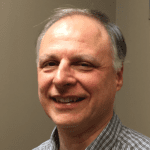
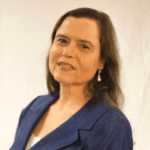
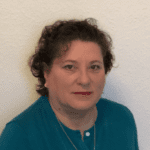
Friday, 1:30 – 2:45 PM
Presented by: Dave Coles & Don Little
Thirty years ago, a person ministering among unreached people may have hoped to plant a few reproducing churches in a lifetime. Now some missionaries hope to catalyze a movement with multiple generations of rapidly reproducing churches. Why this change in perspective? This will be a warm and robust discussion of traditional approaches to church planting versus movement approaches. We will describe the distinctives of the approaches, then discuss strengths and weaknesses of each. Ample time will be allowed for Q&A and discussion in the following session: Part 2. Participants will come away with a clear understanding of traditional and movement approaches to church planting, the advantages and fruits of each and concerns that have been raised about each as well as implications for missions strategy in the various approaches.
Primary Audience: Mission leaders, missionaries, pastors, mission pastors
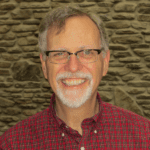
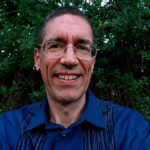
Watch:
Listen:
Friday, 3:30 – 4:45 PM
Presented by: Dave Coles & Don Little
This session will consist of Q&A and discussion, based on the material presented in our prior session: Part 1. Anyone planning to attend Part 2 should plan to first attend Part 1.
Primary Audience: Mission leaders, missionaries, pastors, mission pastors


Watch:
Listen:
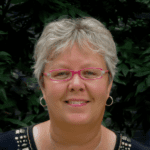
Saturday, 9:30 – 10:45 AM
Presented by: Joann Pittman
Following several decades of relative openness in terms of religious life in China, the past 5 years have seen a dramatic tightening. New religious regulations have been issued that are shrinking the space within which the Christianity can operate. In this workshop we will look at the social and political drivers of this new normal, and examine their impact on local believers and foreign Christian workers.
Primary Audience: Individuals and leaders of organizations engaged in China
Human Resources
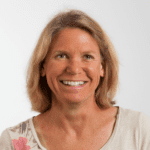
Thursday, 3:30 – 4:45 PM
Presented by: Leanne Dzubinski
Increasingly, mission agencies are asking women to step into mission leadership in both home and field offices. Women who accept the call to lead often encounter barriers of subtle bias that make their job more difficult. As the mission world shifts from Western, power-centric models to multicultural partnership models, reducing the impact of subtle bias towards women (and other historically marginalized groups) becomes increasingly important. This workshop presents the latest research on six main forms of subtle bias that can impede women when they step into leadership roles. Understanding and naming the challenges is the first step to reducing subtle bias barriers for all organizational leaders. Practical strategies for creating smoother leadership paths can help all organizations move forward in partnership for the future.
Primary Audience: Mission leaders
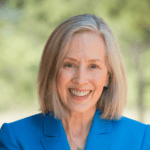
Friday, 8:30 – 9:45 AM
Presented by Theresa Lynn Sidebotham
Between sexual harassment, cultural sexuality issues, and changes in employment law, it’s easy for an organization to flounder over legal and personnel problems. We’ll discuss current employment updates with a focus on steering an accurate course spiritually and legally. We will discuss how to stay current with key legal issues in employment law, take a practical look at possible responses in difficult situations, and get information to evaluate situations well.
Primary Audience: HR personnel
Friday, 1:30 – 2:45 PM
Presented by: Barry Danylak, Suzanne Grumelot & Catherine Thompson
Given the reality of increasingly diverse ministry teams, this workshop will examine and evaluate current policies and behaviors in order to develop best practices that equip and empower all members regardless of marital or parental status. Leaders will look at some of the differences between single and married people’s perspectives on policies and practices that at times can seem biased. They will leave with tools to examine and evaluate their own mission organisational culture and practices.
Primary Audience: Human resource and member health support personnel, trainers and mobilizers



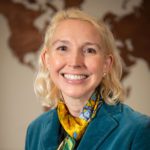
Friday, 3:30 – 4:45 PM
Facilitated by: Jennifer Holloran
Have you questioned the effectiveness of your annual performance appraisal process? Seen some of the recent thinking about different methods for performance management? Wondered what other organizations are doing in this area and whether they’ve decided to do something new? If so, come hear from our panel of HR leaders and find out what their organization currently does in this area, as well as what they are considering for the future. This interactive discussion will help HR leaders and professionals hear about one another’s current practices, learn from each other’s successes and failures, and explore innovative thinking in performance management.
Primary Audience: HR professionals and leaders
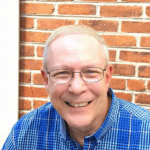
Saturday, 9:30 – 10:45 AM
Presented by: Joel Sutton
This workshop is designed for all those involved in assessing the readiness of potential missionary personnel to thrive in a cross-cultural setting. The group will be asked to provide feedback in the following areas: what elements in an applicant’s life do they assess, how is assessment shared between the church and the agency, how is this done in a legally compliant way, what are their guidelines for the various emotional wellness and lifestyle issues, and how do they delve deeply in order to determine the level of healing? The group will be sharing best practices in assessment in a way that can benefit everyone.
Primary Audience: Those who are tasked with assessing the readiness of prospective missionary personnel
Saturday, 9:30 – 10:45 AM
Presented by: Darryl & Gwen Smith
As organizations continue to focus their efforts on becoming more diverse, the racial power dynamics that exists, makes it difficult for the voices of People of Color (POC) to be heard and valued. Companies have become more accepting of hiring the brown face but not listening to the brown voice. If they want to get ahead in the US, people of color have had to learn how to navigate white spaces. Some of the challenges that POC face when leading in white spaces include: culture dynamics, code switching (language), hairstyles, and fashion. Come have a dialogue as we share our experiences and discuss ways in which we can navigate these spaces in love.
Primary Audience: Leaders who desire to grow and understand the realities and dynamics of leading people of color
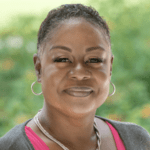
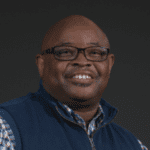
Member Health
Mobilization
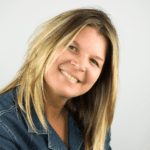
Thursday, 3:30 – 4:45 PM
Presented by: Jeannie Marie
Use the Grow to Go Test assessment to help evaluate potential candidates, giving them practical next steps to get ready to go both across the street and around the world. Discover how the What Kind of Global Goer Are You? quiz gives ordinary people self-awareness about what motivates them to engage cross-culturally, and start using the kind of language that will inspire different personality types. Get the plans to create interactive Global Challenges such as Refugee Rations, Discover by Doing and Prayer PathWays—and a group guide—to grow God’s heart for the nations in individuals, small groups, or churches based on Across the Street and Around the World.
Primary Audience: Mission Leaders, Church Leaders, Mobilizers
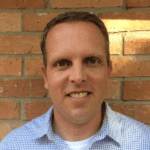
Friday, 8:30 – 9:45 AM
Presented by: Chris M.
How can churches identify, prepare and deploy workers that thrive in the nations? What does it look like to engage in training and discipling communities of goers that bless the lost and the church as they prepare to go? What if the church was was strengthened, leaders were produced, and the lost were baptized as your church became more voracious in sending? What does it look like to produce the character and walk your goers will need to thrive and the habits of multiplication they will need to be fruitful?
Primary Audience: Pastors, lay leaders, Mobilizers, missions pastors, trainers, recruiters, church relations
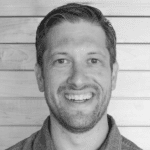
Friday, 1:30 – 2:45 PM
Presented by: Todd Engstrom
Todd Engstrom will share the vision of The Austin Stone to catalyze a church planting movement among 100 unreached people groups. He will share how The Austin Stone has become a fully mobilized, fully engaged church that is not only sending but catalyzing other churches to send. The Austin Stone is a case study for what is possible for a church, in partnership with other churches and agencies, can accomplish through vision and collaboration.
Primary Audience: Mobilizers and church leaders

Friday, 3:30 – 4:45 PM
Presented by: Matthew Ellison
Local churches are designed by God to be central players and full partners in missions, they have most (but not all) of the resources needed to make disciples of all nations. Mission Agencies also have a God-designed role; they have most (but not all) of the expertise. But there is often a disconnect between them. In this workshop we will explore how churches and agency mobilizers can learn from and better understand one another, in order to develop more meaningful and effective partnerships.
Primary Audience: Church staff, agency staff and mobilizers
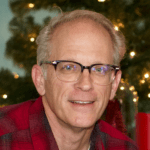
Saturday, 9:30 – 10:45 AM
Presented by: Chris Lang
Does your organization have clear expectations for how your mobilizers use their time? Do you have expectations for your mobilizers’ work output and productivity? In this workshop we will discuss using principles from the book The 4 Disciplines of Execution to help your mobilization department set goals, develop lead metrics and systems of accountability to help your team improve their performance.
Short-Term Missions

Thursday, 3:30 PM
Presented by: Kathy Mort
Looking through the lens of the seven Standards of Excellence in Short-Term Mission, participants will consider components for a successful STM program for their church, school or mission. We will consider best practices in short-term missions and some tools to help take your mission program to the next level!
Primary Audience: Individuals who want to consider ways to make their short-term mission trips better

Thursday, 3:30 – 4:45 PM
Presented by: Charlotte Kassis
During this workshop we will discuss how to have intentional conversations all throughout a short-term mission trip (not just the debrief). These conversations should help goers process how God is leading them to become a global-minded Christian. Going on a short-term trip can immerse a believer in emotions and experiences of how God is leading them to embrace a global gospel. The learning objectives are to define what a global-minded Christian is, to explain the role of STM in the discipleship process, to compare and contrast various STM models, and to select questions and conversation strategies that can be implemented each day of a STM.
Primary Audience: Organizations, school or churches who send short-term mission trips
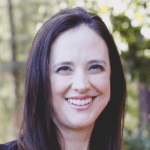
Friday, 8:30 – 9:45 AM
Presented by: Jolene Erlacher
How can agencies and churches best prepare and send next gen individuals to serve overseas for weeks or months at a time? How do young Millennial and Gen Z goers differ from previous generations? What is needed to make their short- or mid-term ministry experience a success? This workshop will look at critical practices to consider in sending next gen short-term missionaries. We will cover key information to include in pre-field orientation, strategies for supporting them on- and post-field, and guidelines for using technology throughout the short-term mission process and experience. There will be an opportunity to share and discuss best practices in each of these areas.
Primary Audience: Agencies and churches who are sending young adults and teens on STM trips
This workshop was not recorded.

Friday, 8:30 – 9:45 AM
Presented by: Randy Schmor
One of the values of a global and cross-cultural ministry/church partnership should be mutuality. A true realization that ALL of our brothers/sisters in the family of God have also ALL been called to live out lives on mission locally and globally themselves. Our global partners may have begun their relationships with us as receivers of our people, resources and ministry but mutuality should push them (and us) to collaborate in a manner that results in people, resources and ministry flowing or being sent in the direction of both partners and beyond. At this workshop, you will be invited to discover the role that intentional relationship, reciprocity (mutuality), time allowance and creative ministry design can and should play in making space for those that have typically been receivers to also become senders.
Primary Audience: Ministry and Church Leadership
This workshop was not recorded.
Friday, 1:30 – 2:45 PM
Presented by: Jen Schepens & David Nishizaki
The world is changing rapidly. Can we say the same for our Short-term missions strategy? Reimagining Short-term Missions is a collection of innovative practices and wisdom from the experiences of 70 long-term missionaries who’ve hosted thousands of STM participants over the last 10 years through Envision of the Christian & Missionary Alliance. What if we could make a few significant shifts that could make STM more effective, and possibly even more life changing for people all over the world, and for the participants themselves? Reimagining Short-term Missions will discuss the necessary shifts in how we see ourselves, our trips, our hosts, and our mission. We hope to bring to the forefront and spark conversation around the questions we all have when it comes to STM. Who’s this really for? How does STM impact local communities? Should we focus resources on long-term work?
Primary Audience: Anyone involved in leading, hosting, training, and/or organizing STM trips and teams
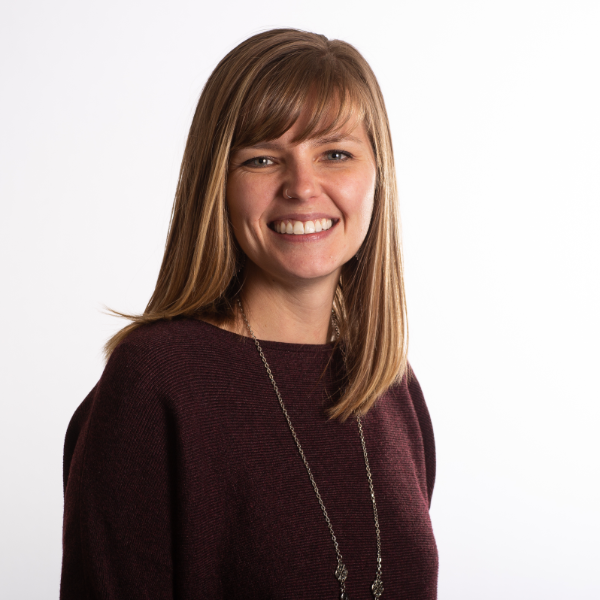
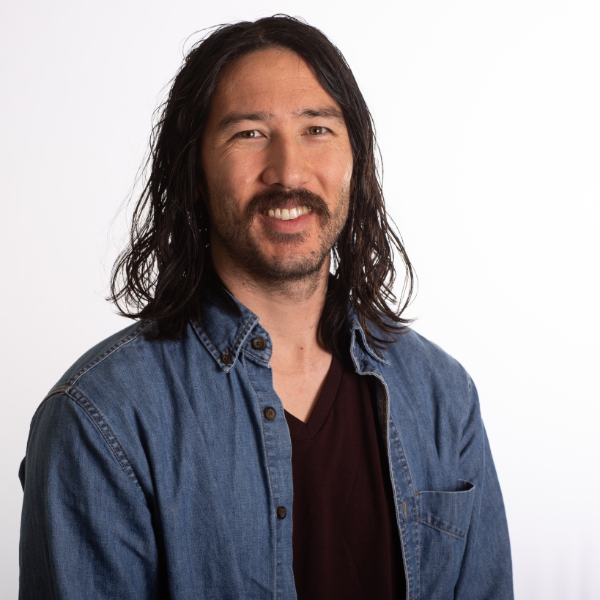
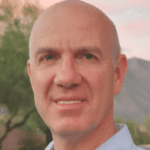
Friday, 1:30 – 2:45 PM
Presented by: Werner Mischke
What’s your framework? Our framework for the mission of God helps determine our framework for short-term missions. We will examine a framework continuum. On the one extreme of the continuum is the legal framework (duty, responsibility, gospel solving problem of guilt). On the other extreme is the regal framework (honor, blessing, gospel solving problem of shame). Where is your mission team on this continuum? What’s your gospel? We will examine some principles about contextualizing the gospel. We will explore the myth of a culturally neutral gospel. Newbigin wrote, Every interpretation of the gospel is embodied in some cultural form. We will consider this principle: The gospel is already contextualized for honor-shame cultures(Jackson Wu). What are your tools? We will conclude with an introduction to evangelistic tools that use an honor-shame framework, including The Father’s Love Gospel Booklet and the GodTools app with Honor Restored.
Primary Audience: Mission trainers, mission trip leaders, mission pastors, trip organizers

Friday, 3:30 – 4:45 PM
Presented by: Jeannie Marie
This workshop will look at who should go on a survey trip to an unreached people group, how to choose where to go, and how to get in with an identity that lets you explore. It will compare your own short-term trip goals (and long-term goals) against the goals for a survey trip. It will also provide a survey tool (and tips) to use on the trip, so you return with valuable information that assesses spiritual openness, livability, potential risks, entry and identity options. We will develop a plan to use the survey trip to recruit future long-term workers. Be inspired that strategic short-term survey trips can pave the way for long-term engagement of unreached (and unengaged) people groups.
This workshop was not recorded.
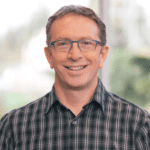
Friday, 3:30 – 4:45 PM
Presented by: Brian Heerwagen
There are many follow-through resources for STM teams traveling for days or weeks at a time. But the experiences of those serving as individuals or families and who are on the mission field for several months or longer require a more robust approach to follow-through. We’ll explore the nuances of longer terms of service and consider strategies for effective follow-through. Together, our workshop group can be part of helping to develop new resource for this important and growing segment of short-term missions!
Primary Audience: Those sending individuals or families for ministries between 4 weeks and 3 years

Saturday, 9:30 – 10:45 AM
Presented by: Tory Ruark
Think about social media posts you’ve made. Now think about posts from those with whom you’ve gone on mission trips. What would a Christian in Africa, the Philippines, or Italy think about you and your team members? Whether we realize it or not, social media is a cross-cultural communication tool–it can be used to build relationships with those you just visited but it can also destroy those relationships just as quickly. This workshop will highlight possible pitfalls of using social media during a mission trip so you can form practices and policies that help your participants and your ministry maintain a positive testimony.
Primary Audience: STM Decision Makers such as leaders, mobilizers, and policy-setting staff members

Saturday, 9:30 – 10:45 AM
Presented by: Brian Heerwagen
Short-term missions is an established component of world wide missions. When done well, it has become a key part of mission strategies globally. We’ll look STM trends and their effects on mission agencies, schools and churches. We’ll introduce ways of working smarter, not harder, and look at more intentional and strategic approaches to STM. Looking to the future, our aim is to make mission trips better!
Primary Audience: Those interested in the future of STM including ways to make your mission trips better
Training
Thursday, 3:30 – 4:45 PM
Presented by: Barry Danylak, Suzanne Grumelot & Catherine Thompson
Misperceptions and poor assumptions often lead to challenges for singles and marrieds working together in multi-situational teams. This research-driven, story-rich, and practical workshop identifies the challenges facing married and single persons working together and proposes some tried and true solutions for overcoming those challenges. We will look at organizational influences and team dynamics. For you as leaders and trainers we’ll provide valuable take-away tools and resources that could help enhance training, mentoring and coaching as you come alongside your personnel serving on multi-situational teams and guide them towards maximizing the fruitfulness of their collaboration.
Primary Audience: Pre-field and on-field trainers, member health support personnel, and mobilizers




Friday, 8:30 – 9:45 AM
Presented by: Dick Freed
One year ago a project relaunched to work together as Missio Nexus member organizations to define and describe current missionary training best practices. About 20 of us have been working for a year and have a 13-part draft ready to present to you for your learning, your input, and your participation in the project. The 13 practices are clustered into 5 themes: Strategy and Planning, People and Relationships, Training Content, Training Delivery Methods, and Progressive Adaptation. What we are building will be better as more and more agencies collaborate! As we look to the future… the time, money and personnel we invest into missionary equipping and empowerment must continue to improve in both effectiveness and stewardship. Please come and help us move that direction.
Primary Audience: HR and executive leadership wishing to improve the effectiveness of training in their organization
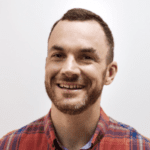
Friday, 1:30 – 2:45 PM
Presented by: Richard Voegt
Missions has changed over the past 20 years, and available methods for equipping and training have seen even greater change. Are we keeping pace with this change or does training look similar to 20 years ago? Do you know what training your members want and need? Are we listening? Do we consider the cost to them? Is another agency offering a better approach? Under the leadership of Jon from Crosswired, we’ll explore these critical questions. We’ll also be giving you access to the voices of missionaries themselves. And we’ll be sharing and hearing insights together with others in the room. This workshop is ideal for decision-makers and trainers who are willing to ask the hard questions and then act accordingly. Change is good – smart change!
Primary Audience: decision-makers and trainers who are willing to ask the hard questions and then act accordingly
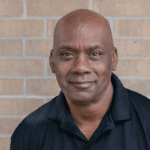
Saturday, 9:30 – 10:45 AM
Presented by: Ron & Star Nelson
Short-termers and long-termers… how can we more effectively equip them to play their part in the Great Commission? Ron and Star Nelson will share from their experience some of the effective messages and means for mobilizing and equipping African-American believers for missionary ministry. African-Americans make up about 13 percent of the U.S. population, but less than 0.5% of the American missionary force to the world. Why is this? Is it changing? What can be done to change it? Experience tells us that now is the time! African-Americans with the right exposure, partnership, and collaboration with others, training, and access to resources can and will become a force in the advancement of the Great commission.
Primary Audience: those pastors, church leaders, mission mobilizers who desire to see more diversity within missions
Mission Finance + Administration
—Administrative Management
—Development

Thursday, 3:30 – 4:45 PM
Presented by: Nils Smith
Following up 2013’s ground-breaking original study, the Online Fundraising Scorecard 2.0 analyzed the same 151 charities to give you longitudinal data and trends that can help you make an immediate impact. Plus, it gives you a first-ever feature on mobile giving.
In this session we will dive into the results of the study as well as practical application for your nonprofit organization.
Primary Audience: Non-profit executives and fundraising leaders
CPE 1.5 hours Specialized Knowledge
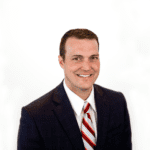
Friday, 8:30 – 9:45 AM
Presented by: Evan Lang
With nearly $40 trillion in assets being transferred from one generation to the next, it is critical that nonprofits be ready to cultivate and receive complex and planned gifts. In this workshop, we will discuss how to identify major donors and major/complex gift opportunities as well as what the conversation looks like to move toward completing major gifts. By pursuing creative strategies, we will review how to take advantage of non-cash and complex gifts that benefit both the donor and the organization.
Learning objectives:
- Explain the changing dynamics of the giving environment
- Identify major/complex gift opportunities
- Share the benefits of complex gifts with major donors
- List specific examples of complex gifts that can be completed
Primary Audience: Fundraising and financial management staff
CPE 1.5 hours Specialized Knowledge
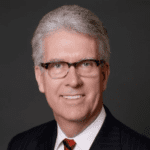
Friday, 1:30 – 2:45 PM
Presented by: Calvin Edwards
With more and more nonprofits “competing” for donor dollars, it is critical to communicate clearly and effectively with donors and prospective donors. This requires communicating the information that your constituency actually wants. Increasingly, what they want is outcomes . . . impact, results, changes in lives of real people! Outcome-based evaluation is the tool to get this information so it can be communicated to donors. In this workshop, Mr. Edwards will build on the “Capturing Outcomes” workshop and discuss why donors care so much about outcomes, and how they can transform external communications. He’ll provide tips on how to share your organization’s critical ministry impact—and not just with numbers, statistics, and ratios!
Learning objectives:
- Discuss why donors care about outcomes
- Apply strategies to transform your organization’s external communications
Primary Audience: Minsitry leaders, CEOs, and development professionals
CPE 1.5 hours Communications and Marketing
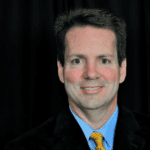
Friday, 3:30 – 4:45 PM
Presented by: Schuyler Lehman
Everybody knows that relationships are the key when it comes to major donor success. However, most fundraisers are missing the boat by not working from the donor’s perspective. Schuyler Lehman will lead this session with the aim of understanding how to cultivate deep and trusting relationships with your biggest donors. He will share the five important insights he’s learned from closing hundreds of seven- and eight-figure commitments for organizations of all sizes.
Learning objective:
- Identify and apply five insights to cultivate deep relationships with your biggest donors
Primary Audience: Nonprofit leaders
CPE 1.5 hours Specialized Knowledge
—Financial Management
—Information Technology

Thursday, 3:30 – 4:45 PM
Presented by: James Kelly
Let’s address the elephant in the room: when you think of technology you probably think of better CRM systems, your website, Microsoft Office, and your IT team. Here’s the scary reality: unless you change your mind I’d give your organization maybe 10-15 years before it dies.
In this session I will seek to prove, along with a few technology expert friends of mine, that technology from companies like Google, Microsoft, Facebook, Amazon and LinkedIn are changing everything and its’ the responsibility of leaders at the top to learn and implement new innovative thinking.
Learning objectives:
- Apply new insights into current and future technology impacting missions
- List educational resources
- Assess examples from major tech companies on how to lead in innovation
- Analyze tools and methods of leading in fresh and creative ways
Primary Audience: C-Suite leaders
CPE 1.5 hours Information Technology
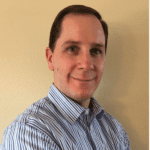
Friday, 8:30 – 9:45 AM
Presented by: Sonny Cordova
With rapid changes in threats, technology and regulations, what is our responsibility to protect our constituents? The session will highlight compliance, cybersecurity, policies and risk assessment in layman’s terms to help prepare the body of Christ to “fight the good fight.
Learning objectives:
- Identify key compliance and cybersecurity issues and the potential impact on your organization
- Implement policies and risk assessment
Primary Audience: All leaders and contributors who want a better understanding of cybersecurity
CPE 1.5 hours Information Technology

Friday, 1:30 – 2:45 PM
Presented by: Doug Hennum
The path to selecting enterprise software is riddled with potential pitfalls and the wrong decision can be costly and frustrating for any size organization. Find out how to minimize failures when making major software application decisions by following a proven process that challenges some commonly held practices.
Learning objective:
- Employ a proven process to make major software application decisions Primary
Audience: those responsible for selecting applications for their organization
CPE 1.5 hours Computer Software and Applications
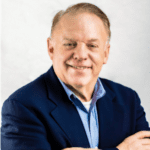
Friday, 3:30 – 4:45 PM
Presented by: Dan Brown
Technology capabilities are moving at an ever-accelerating pace. Technology platforms are more capable than ever and every day we hear about the advances in innovations like machine learning. The objectives of this session are to discuss the critical importance of building the right technology leadership team, the keys to attracting talented technologists, integrating the technology team into the organization’s culture and collaborating to deliver on the promises of technology to impact the mission.
Learning objectives:
- Explain the importance of building the right technology leadership team
- Apply strategies to attract top tech talent
- Integrate the technology team into your organization’s culture
- Apply technology in the advancement of your mission
Primary Audience: Technology and hiring leaders
CPE 1.5 hours Personnel/Human Resources
—Tax & Legal
Earn up to 12 Certified Professional Education credits in the Mission Finance & Administration track. For more information, including fields of study, please click here

